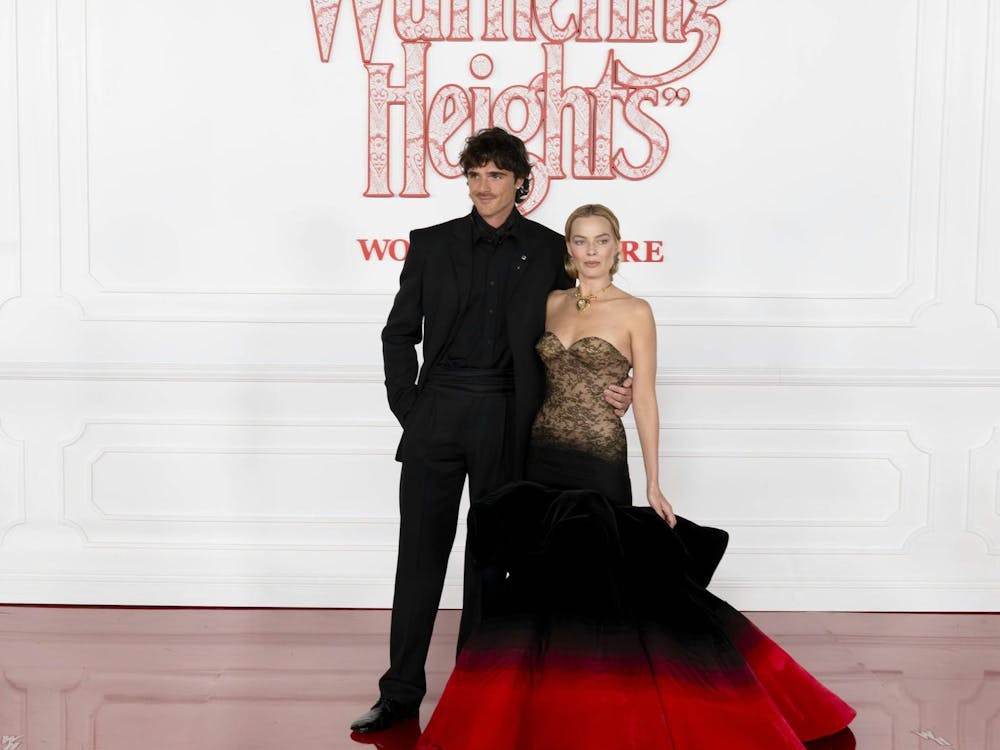The horror genre has been redefined in the last decade. The jump-scares, cheap gore and killers in masks that were once the forefront of mainstream horror have been replaced with psychological fear that spills into the absurd, grotesque and intelligently chilling.
Alongside Jordan Peele and Robert Eggers, avant-garde writer-director Ari Aster has contributed to the rise of this subgenre with his two previous films “Hereditary” and “Midsommar.” He cements himself as one of the leading auteurs in modern horror with his latest movie “Beau Is Afraid” — an absolutely unhinged epic that could be seen as his most terrifying work yet or sprawling nonsense that takes much too long to reach its point.
Beau, played by Joaquin Phoenix, is a man of anxiety who is stunted emotionally, professionally and sexually, largely in part due to his oppressive mother Mona, whose younger version is played by Zoe Lister-Jones and older version played by Patti LuPone. Upon news of her death, Beau leaves his dilapidated, garbage-strewn neighborhood to embark on a journey home for her funeral.
While the story is deceptively simple, it is inflated and torqued into a surreal odyssey of guilt, pain and insanity as all of Beau’s fears manifest themselves into reality. Episodic installments take audiences through a “Truman Show”-esque nightmare that observes Beau coming to consciousness, finding the warps and cracks in his perception of the world around him.
As he runs from a naked homeless man known as “Birthday Boy Stab Man,” watches in horror as a teenage girl chugs down blue paint and confronts something sinister in an attic, the film feels almost like a three-hour panic attack meant to be both repulsively appalling and perversely funny.
In exploring the deep neurotic corners of Beau’s mind, Aster’s visual imagination is wonderfully unrestrained — mesmerizing in its extremes and displayed in deliberate detail, seen even in portraits on the wall of his mother’s house and store signs that read “Erectus Ejectus.”
The production design and sound mixing never falters in portraying the perpetual state of paranoia Beau is constantly living in, creating a fantasia of misery both heavenly and hellish that dramatizes the stranglehold Mona has over Beau’s psyche and physical being.
However, stylized hallucinations, shock value and mommy issues alone cannot confidently carry a three-hour run time. In “Beau Is Afraid,” Aster seems concerned mainly with showing what fits the outcome, not with Beau himself. The man whose mind the audience is taken on a meandering journey through seems to have no discernible personality or voice.
Phoenix is not given much to do except fall into anxiety-ridden fits as he stutters through conversations, unable to voice his opinion, and stare blankly as he dissociates. To his credit, though, he does this flawlessly with desolating sadness in a praiseworthy performance.
Perhaps it may be the point that Beau is unable to control the story more than it controls him, that he is hopelessly burdened by his own delusions and internal chorus of intrusive thoughts. Nevertheless, audience members may feel as though the main character is not a character at all, but rather a directorial stand-in and catalyst for a statement that overshadows development and plot.
Compared to protagonists Annie and Dani from Aster’s acclaimed “Hereditary” and “Midsommar,” Beau proves to be the weakest and arguably the least compelling. So paralyzed by fear, he is unable to act for himself, only react to the series of misfortunes that follow him.
That is not to dismiss the cathartic and complex, albeit slightly convoluted narrative that Aster delivers in “Beau Is Afraid.” At the center of the film is a mother who had a child for all the wrong reasons and a Freudian analysis of the consequences that child must face because of it.
Though the wearisome three-hour runtime taken to traverse Beau’s traumas and subconscious works against Aster’s favor, the steadfast descent into madness as the delicate layers unfold to reveal more absurdly terrorizing and catastrophic truths may be reason to overlook the faults in the bizarre passion project.
There is also something admirable to be said about the commitment to the go-for-broke reputation gamble in the strangeness of “Beau Is Afraid” that writer-directors can only make once in their career. Aster indulges himself with his wildest ambitions while showcasing his talent for finding original and increasingly weird directions in horror, demanding the audience’s attention and creating a thematic conclusion that is resolute and soundful if not jaw-dropping.
The film is the most controversial of Aster’s work by far and for good reason. It does, however, seem to fulfill exactly what he ultimately wanted —for audiences to walk out of the theater questioning everything they just saw, wanting to throw up and afraid to call their mother back.







